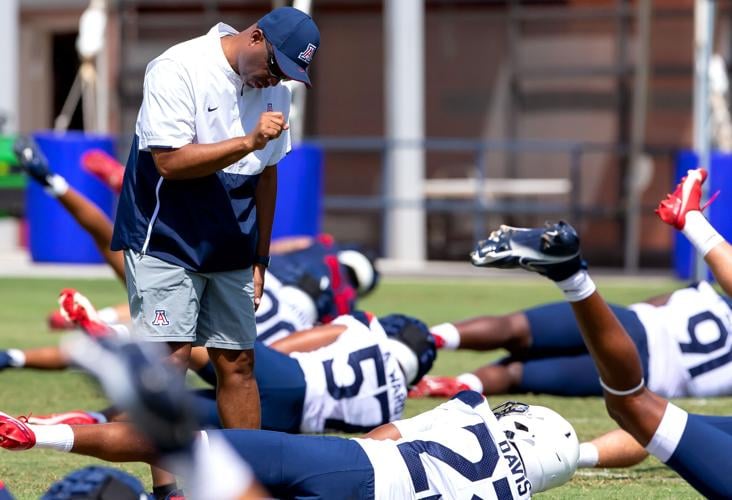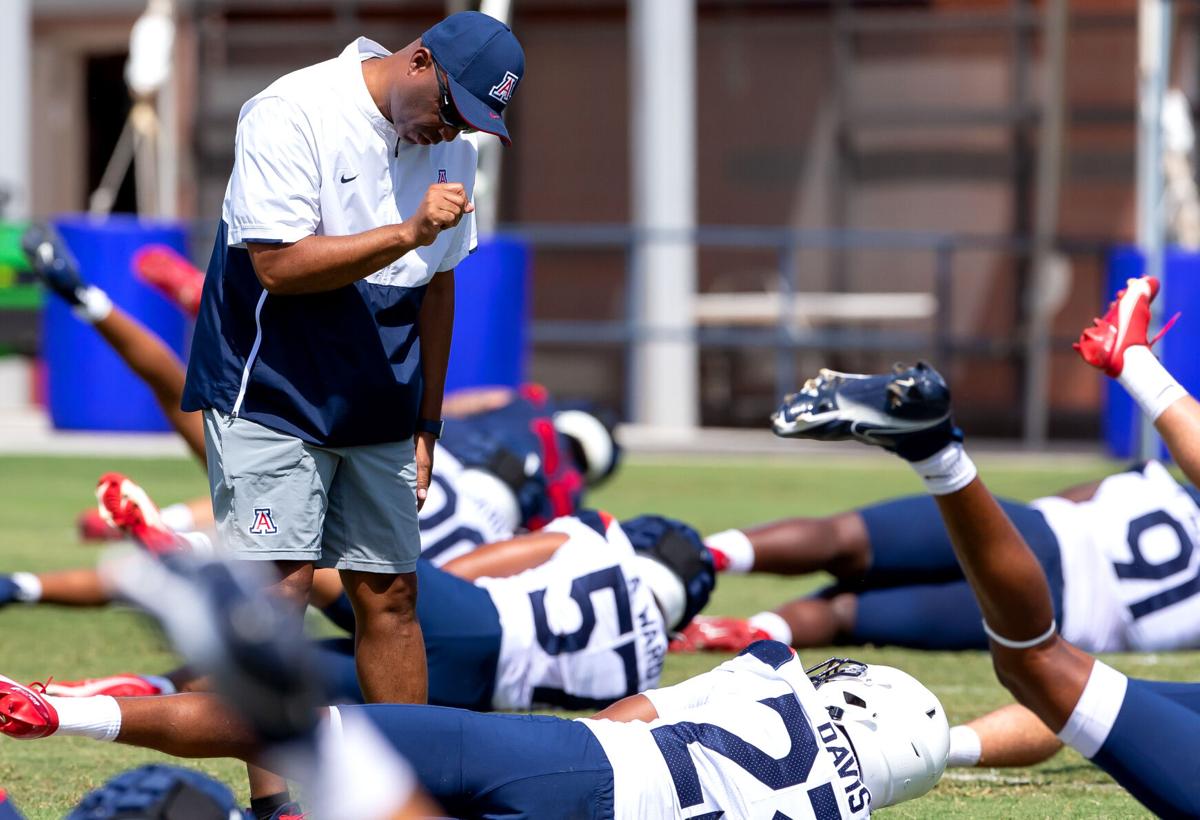Why should the so-called Four Corners schools stay in the conference when Oregon, Washington and Stanford will continue soliciting the Big Ten, even if there is a short term grant-of-rights signed? — @CjAzWildlifeLaw
We know why Oregon State and Washington State will accept any proposal. But why should Utah, Colorado and the Arizona schools be held at ransom by Oregon, Washington and Stanford when they will leave at the first opportunity? —
@DamonDawg
A: This is the added complication — the very reason the Hotline views Pac-12 survival as merely a four-point favorite over Pac-12 extinction. (That’s on a neutral field, by the way.)
Were the calculation entirely about annual revenue, survival would be a substantial favorite. We believe Arizona, ASU, Colorado and Utah would prefer to remain in the Pac-12, and there’s no indication that either league has a significant advantage in future revenue.
But the long-haul stability issue certainly must be considered. The Hotline does not believe the Big Ten will expand again this decade. In our estimation, Notre Dame will sign a new deal with NBC and remain independent, limiting the Big Ten’s options.
But admittedly, that’s a precarious assumption for the Four Corners schools.
At this point, the challenge for commissioner George Kliavkoff is crafting a contract that provides flexibility for Washington, Oregon and Stanford and security for the others. That could be a six-or eight-year deal with an opt-out clause in case the Big Ten comes calling.
Why would the Four Corners agree? Welp, Utah won’t sign a 10- or 12-year deal with the Big 12, and we aren’t sure Arizona State would, either. Those schools want flexibility in case the long-anticipated FBS split unfolds and the call comes from the upper tier. (The Phoenix media market is No. 1, per Nielsen DMAs.)
The other issue is timing: The Pac-12 is negotiating its media deal now and will offer schools a written contract; the Big 12 cannot negotiate for two years and, as a result, is limited to offering projections and promises. If the revenue is right, Kliavkoff’s task becomes vastly easier.
Rumor is that ESPN was in on the SEC grabbing Oklahoma and Texas, and Fox was in on the Big Ten grabbing USC and UCLA. When it comes to Pac-10 expansion, is ESPN really the one making the choices? — @brycetacoma
A: It’s hardly a rumor. ESPN and Fox drove the SEC and Big Ten expansion moves — they are the grandmasters in the realignment game. And in the case of Fox Inc., … err, the Big Ten … company executives are participating in the league’s negotiations with other media partners.
ESPN will be the dominant force in the Pac-12’s process, for better or worse for the conference: Either it gobbles up most of the inventory at a satisfactory valuation or lowers the bar for everyone by merely nibbling.
Can we stop talking about realignment for a second and realize we’re less than 30 days from kickoff? Nothing will happen until next year; the continuous speculation is pointless. — @TheRealK333
A: Beg to differ here. Resolution is likely this fall, and we will cover realignment regularly through its conclusion — the issue is far too important to ignore. That said, the Hotline will be ramping up coverage of football next week.
Odds of some kind of TV deal between the Pac-12 and the ACC? — @bfedotin
Pretty good … perhaps better than 50/50. ESPN could create a media partnership based on each league’s Tier 3 infrastructure, combining the ACC Network with the Pac-12 Network to create more subscribers, and revenue.
For all their problems with distribution, the Pac-12 Networks are on the cutting edge with their remote broadcast technology. We wrote about that recently, too.
I know UCLA and Oklahoma disregarded ties to Cal and Oklahoma State with their conference moves, but do you think Oregon and Washington would leave the Pac-12 without Oregon State and Washington State? Should Pac-12 fans feel more secure about this? — @FlockRon
A: UCLA’s break from Cal could make it difficult for Oregon or Washington to leave their in-state rivals behind, in part because the issue is front-and-center before the Ducks or Huskies attempt an escape.
But we aren’t aware of politics blocking realignment at the Power Five level since the early 1990s, when former Texas Gov. Ann Richards prevented the Longhorns from joining the Pac-12 by insisting that Baylor be included.
State legislatures might make it difficult for the Ducks and Huskies to move, but could they prevent it? I’m skeptical.
However, the mere thought of political pushback might lead the Big Ten to simply invite Stanford instead of Oregon or Washington if/when the time comes.
Will you rank the Mountain West teams in the order that they will be added to the Pac-12? — @losquangeles
A: I’m not sure that any will be added, but if there’s movement …
1. San Diego State
2. Fresno State
3. UNLV
And please note: SDSU is on a different tier for reasons outlined previously.
We give the Aztecs a 50% chance of getting in. Nobody else is above 255.
Why so slow on adding San Diego State? Is it because of the Aztecs or the lack of a good option to pair with them? — @flintaeroinc
A: Nothing has slowed down the process. If the Pac-12 decides to expand, any substantive developments are weeks, if not months away. And yes, the lack of an obvious 12th team could be problematic for the Aztecs.
What is going on with the Pac-12 negotiating window? Wasn’t Thursday the last day? — @KLDUB4LIFEWILEY
A: It was, if the process actually began the day after the Pac-12 announced it would commence formal contract negotiations. But as we noted on Thursday, the exclusive window for ESPN and Fox likely has been extended to account for the ongoing Big Ten negotiations. The Pac-12 would want to know which networks have grabbed a piece of the Big Ten’s media rights, while ESPN and Fox would want to know exactly what they’re spending on the Big Ten.
Best guess: The exclusive window extends into September, no deal is reached, the Pac-12 takes its inventory to the open market and resolution comes in September or October.
Do you know if the Big Ten is negotiating a media contract with and without UCLA in the package? Maybe the Pac-12 is doing the same? — @SpaceHomme2
A: I cannot speak to the Big Ten’s internal process, but I would assume the Pac-12 and its consultants ran the numbers with UCLA included exactly one minute after Gov. Gavin Newsom entered the fray a few weeks ago. Our sense is that a reversal of course in Westwood, however unlikely — and it’s extremely unlikely — would result in limited loss of media rights for the Pac-12.
With the Bruins included in the grant-of-rights contract, ESPN would be extremely motivated to secure an exclusive deal. It wants a piece of the Southern California market.

What “hearing” is taking place in October in regards to UCLA’s decision? What is the objective of the hearing? — @nickbeatty72
A: First, there is confusion about the timing: UCLA is required to submit a report on the Big Ten move to Newsom and the UC Board of Regents by Aug. 17. At that point, we might gain more clarity on the endgame.
More likely, Newsom and the regents will take the information, discuss with their legal advisors and various power brokers within the state legislature, and eventually offer a response. They cannot block the move, but they can make it painful for the Bruins where it matters most: the wallet.
Best college town in the Pac-12? — @LongLiveMonty
A: Eugene.
And Tucson.
Also, Boulder.
What streaming services might be in play for conference rights? Is there one that’s under the radar that you think might make a play? — @wsubrady27
A: Kliavkoff raised a few eyebrows last week at Pac-12 media day when he said, “It’s highly likely that we will end up with a big digital partner for some of our rights.” Yes, that could be Apple or Amazon, which are slowly acquiring sports rights. But it also could mean ESPN+, Paramount (CBS) or Peacock (NBC).
The new media bundle features three tiers: broadcast television, pay-TV/cable, and digital. If the Pac-12 signs a new rights package — that’s not guaranteed, in our opinion — it will assuredly encompass all three tiers. I would bet against an “under-the-radar” streaming partner unless the package has been sub-licensed from the primary rights-holders.
Who is your favorite Big 12 personality? — @Doctor_alesmith
A: Mike Leach.






